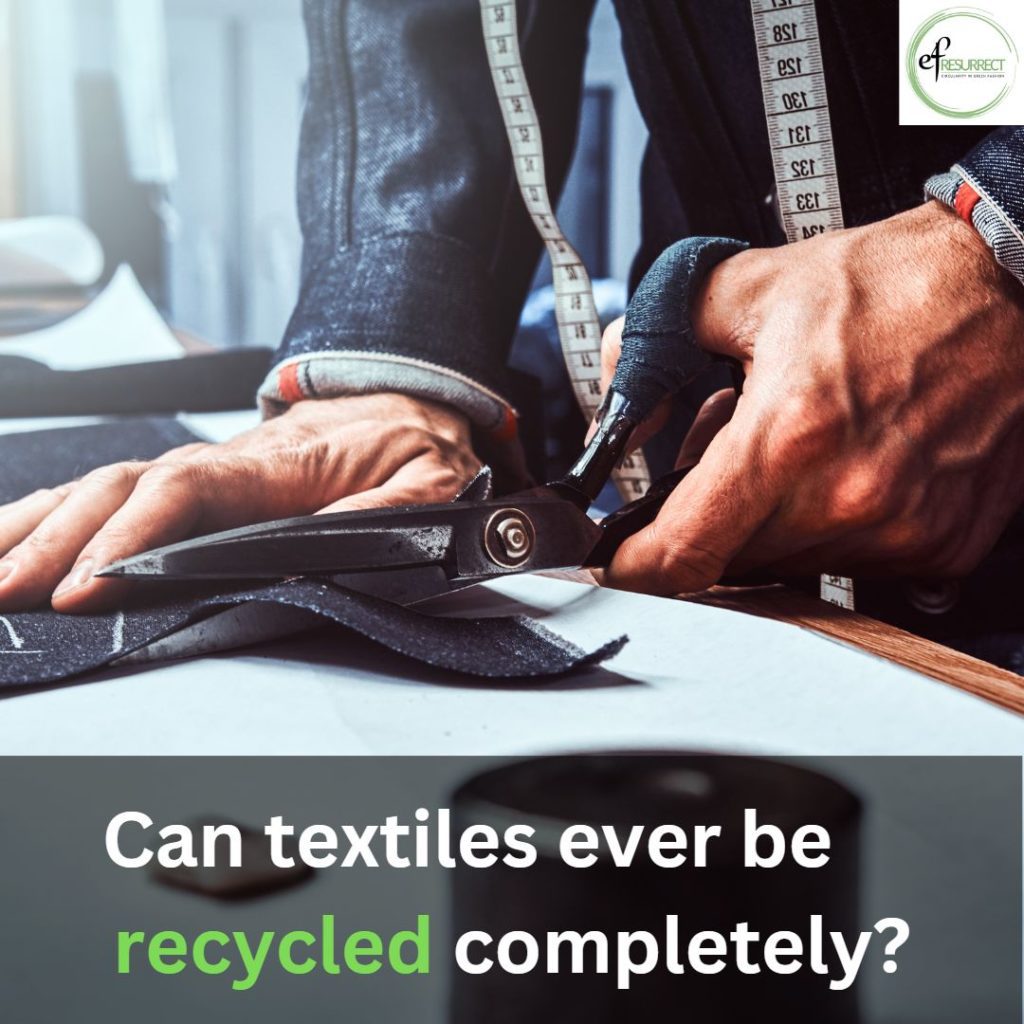
The Swedish pulp producer Renewcell has just opened the world’s first commercial-scale, textile-to-textile chemical recycling pulp mill, marking the beginning of a significant shift in the fashion industry’s ability to recycle used clothing at scale. The mill is the first commercial mill to use chemical recycling, allowing it to increase quality and scale production.
Renewcell is aiming to recycle the equivalent of more than 1.4 billion T-shirts every year by 2030, with the goal of limiting fashion waste and pollution while also keeping garments in use and reuse for as long as possible. The fashion industry is estimated to be responsible for 8-10% of global carbon emissions, with 65% of these ending up in landfill within 12 months. Only 1% of recycled clothes are turned back into new garments, while charity shops, textiles banks and retailer “take-back” schemes help to keep those donated clothes in wearable condition in circulation.
The majority of clothes in our wardrobes are made from a blend of textiles, with polyester accounting for a 54% share of total global fibre production. This is due to the low cost of fossil-based synthetic fibres, making them a popular choice for fast fashion brands. To recycle worn-out clothes back into new clothing, the Renewcell mill makes a biodegradable cellulose pulp they call Circulose. The textiles are shredded and have buttons, zips and colouring removed, then undergo mechanical and chemical processing to separate the tightly tangled cotton fibres from each other. After drying, the pulp sheet feels like thick paper and can be dissolved by viscose manufacturers and spun into new viscose fabric. Renewcell uses 100% renewable energy, generated using hydropower from the nearby Indalsälven river.
Viscose is the most common manmade cellulosic fibre (MMCF), with a market share of 6% of the total fibre production. Dissolving pulp cellulose is used by the textiles industry to make around 7.2 million tonnes of cellulosic fabrics each year, but the majority comes from wood pulp, with more than 200 million trees logged every year. Renewcell’s technology helps keep forests intact and produces a higher pulp yield. It has a contract with Chinese viscose manufacturer Tangshan Sanyou Chemical Industries for 40,000 tonnes per year, and is in talks with other large viscose manufacturers, such as Birla in India and Kelheim Fibres in Germany. Swedish fashion brand H&M has signed a five-year, 10,000 tonne deal with the pulp mill, and Zara has partnered with Renewcell on a capsule collection in 2022.
Renewcell hopes to be able to recycle 600 million T-shirts within a year, the equivalent of 120,000 tonnes of textile waste and a doubling of its current capacity. By 2030, they are aiming for a capacity of 360,000 tonnes. Renewcell’s technology can only recycle clothes that are made of cotton, with an allowance of up to 5% non-cotton content. This is due to the difficulty of separating polyester, which affects product quality, and consumer attitudes towards the value of clothes. Natascha Radclyffe-Thomas, professor of marketing and sustainable business at the British School of Fashion, agrees that it’s a question of value.

2 Responses